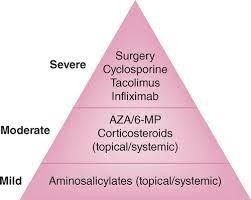A nurse is reviewing the medical record of an older adult client who is confused to place and time. Which of the following actions should the nurse plan to take?
Place the client on a low-protein diet
Restrict the client's intake of dietary sodium.
Ask the provider to decrease the magnesium hydroxide dosage.
Request a prescription to discontinue diphenhydramine.
The Correct Answer is C
Choice A rationale:
Placing the client on a low-protein diet is not appropriate based solely on the provided information.
Choice B rationale:
Restricting dietary sodium might be considered for specific conditions but is not directly related to the client's confusion.
Choice C rationale:
A high magnesium level can contribute to confusion in older adults. Requesting a reduction in the magnesium hydroxide dosage can help address this issue.
Choice D rationale:
Discontinuing diphenhydramine might be considered if it is contributing to the client's confusion, but there is no specific information provided to support this action.
Nursing Test Bank
Naxlex Comprehensive Predictor Exams
Related Questions
Correct Answer is B
Explanation
Choice A rationale
Omeprazole is a proton pump inhibitor used to reduce stomach acid production and is not typically used for treating bloody stools in inflammatory bowel disease.
Choice B rationale:
Infliximab is used to treat inflammatory bowel disease and can help manage symptoms such as bloody stools by suppressing the inflammatory response.
Choice C rationale:
Ondansetron is an antiemetic used for nausea and vomiting, not related to bloody stools.
Choice D rationale:
Metoclopramide is used to treat nausea, vomiting, and gastrointestinal motility disorders, not specifically indicated for bloody stools.

Correct Answer is A
Explanation
Choice A rationale:
Keeping the television on at a low volume in the background can provide sensory stimulation and a familiar environment for the client with Alzheimer's disease. It can also help decrease feelings of isolation and confusion.
Choice B rationale:
Abstract paintings may be confusing or agitating for a person with Alzheimer's disease. Familiar and recognizable decorations are more suitable.
Choice C rationale:
Reorienting the client daily to the day and time can be helpful, but it is not the priority teaching in this context.
Choice D rationale:
Using dim lighting is not recommended as it can contribute to confusion and disorientation in a person with Alzheimer's disease. Adequate lighting is important for safety and orientation.
Whether you are a student looking to ace your exams or a practicing nurse seeking to enhance your expertise , our nursing education contents will empower you with the confidence and competence to make a difference in the lives of patients and become a respected leader in the healthcare field.
Visit Naxlex, invest in your future and unlock endless possibilities with our unparalleled nursing education contents today
Report Wrong Answer on the Current Question
Do you disagree with the answer? If yes, what is your expected answer? Explain.
Kindly be descriptive with the issue you are facing.
